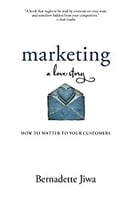class=" image-block-outer-wrapper layout- design-layout-inline "...
How the Fear of Failure is Limiting Your Career
image-block-outer-wrapper
layout-
design-layout-inline
"
data-test="image-block-inline-outer-wrapper"
>
sqs-block-image-figure
intrinsic
"
style="max-width:11759px;"
>
class="image-block-wrapper"
data-animation-role="image"
data-animation-override
>
>
(Read Time: Approx. 6 minutes)
Fear.
I'm not talking about the fear we may have of clowns or being eaten by a shark - both legit fears of mine. I'm talking about the fears that go through our minds every day. Hundreds to thousands of times a day. Sometimes they're subconscious, and we aren't aware we're even thinking them. Other times they're conscious, and we're well aware of our thoughts.
As with the fear of sharks, these daily fears occur as a part of self-preservation. When we're evaluating a situation, it's more difficult to imagine the positive outcomes that could come of it and much easier to wrap our heads around the negative possibilities.
Partly, because it involves predicting the future. Which last time I checked, no one can do. So we use our past experiences to try to build what we think is a realistic prediction of what the outcome would be if we took the job offer, decided to start a business, accepted the invitation to speak at a conference in front of hundreds (or maybe thousands) of people.
We Start Off Positive, Then...
I think we all tend to think of these things in a positive light at first and probably get pretty excited about them. Then we start to go negative. We begin to think about what could go wrong. We can come up with some pretty crazy stuff.
Pretty soon, the negative thoughts start to carry more weight than the positive. Maybe we use negative experiences we've had in the past to relate to what we're thinking about. It's only logical, given those are things we've actually experienced. They're tangible.
If what we're thinking about is something we've never done before or drastically different than anything we've ever done before we have no past reference to guide us. There is a lot of unknown, and the human mind has a difficult time rationalizing and being comfortable with the unknown. That, in and of itself, is the root of our fear.
See the Forest, Not the Trees
If we could force ourselves to take a step back and stop trying to visualize something that hasn't happened and think more logically, we would be doing ourselves a much bigger favor. If you're a Star Trek fan, you might think to yourself, "what would Spock do?"
This type of fear and irrational thinking can be career-limiting. We may pass up a role that could really propel our career to the next level or more in line with what we are passionate about.
As the old saying goes, we can't see the forest for the trees. We can't step back and look at the big picture because there are too many unknown variables.
Comfort Kills Careers
But a lot of times, we're comfortable with the status quo. Don't confuse happiness with comfort, though. Many times the fear we feel when presented with a job offer is tied to thoughts of failing. We think, "although I'm not happy in my current role, it's stable, and I know what's expected of me each day. I'm pretty comfortable." Then we think "this new role would force me to do things I've never done before. I don't know if I could do those things. What if it doesn't work out? Then what? I would never find another job. I'd be broke. My family would lose our home. We'll be living in a tent city in Seattle."
Whooooaaa. See how quickly that can escalate! My example was mostly in jest, but that's really how our minds work. That's how irrational these fears can become.
If you really stopped to think about it, you would rationally realize that... "hey, I'm taking a risk, but the upside is enormous. What if I succeed? Now I've gained even more valuable experience than I already had. If I excel at this new work, I could get promoted and, ultimately, get paid more. I would get to do more challenging work. Stretch my capabilities further and uncover things I never thought I was capable of before. But what if it doesn't work out? So what. I have a masters degree. A good track record of accomplishment. I have a reliable network of co-workers who are now at other companies. I'll be fine.
Probably better off than I am now because I gained new experience and perspective. If I haven't been in my new role very long and I start looking for something else, how will I explain that to recruiters and the companies I interview with?
Simple. Future employers would probably like to hear that I took a risk to learn and stretch my capabilities. Likely, more than they'd like to hear that I stuck with my role for so long because I was comfortable."
Fear Can Make You Sick
This sounds so simple, but why is it actually so challenging.
Emotions come into play. Your stress levels rise. Anxiety begins to build.
This stress causes different hormones and chemicals to be released that ultimately affect our thinking and rationale. To no one's surprise, negative emotions can weaken our immune response.
We Have a Tendency Toward Negativity Bias
There is also something called the negativity bias, and we have a tendency to shift our thinking toward it.
One definition of negativity bias from GoStrenghts! states: "The negativity bias is the phenomena by which humans give more psychological weight to bad experiences than good ones. In fact, some researchers assert that negative emotions have an impact close to 3x stronger than positive emotions."
This is confirmed in a case written by Baumeister, Bratslavsky, Finkenauer, and Vohs in which they concluded: "...bad information is processed more thoroughly than good." They went on to say, "When people are making decisions about specific, impending events, they seem more motivated to avoid bad outcomes than to pursue good ones, at least in many cases in which the magnitude of the two outcomes has been carefully calibrated to be the same."
I found this article extremely fascinating and, although it's a very long read, I would recommend it to anyone interested in taking a deeper dive into this topic.
Fifty-Thousand Thoughts per Day
I also recently read the book "Unf*ck Yourself" by Gary John Bishop. In that book, it was mentioned that we have over fifty thousand thoughts per day. 50,000! Think about it. Fifty thousand thoughts - and a tendency toward a negativity bias. No wonder we can't make a good decision about our future!
When I decided last month that my next topic would be on fear, I wanted to go deeper than just giving my opinion on fear and why you should try to limit this negative way of thinking. As I started to dig in and do some research, I was blown away with how complicated the psychological phenomena of fear actually is. I plan to break it down into more micro topics around the different aspects of fear, especially as it relates to our careers, professional growth, and our general happiness.
Conclusion
As I stated at the beginning of this post, I want you to think about the fears you're dealing with - both now and those you've dealt with in the past. Think about the job you turned down because you were afraid to fail or afraid of the unreasonable prediction you made about your future. Would you have accepted it if you had thought things through a little more rationally?
I also wanted to share some of the insights I gathered around the psychology of fear and how our minds work. Let you know that you're not alone in having doubts about your abilities or a fear of the unknown. It's completely normal. However, it is also career-limiting.
So I'll leave you with one of the most well-known, not to mention the most accurate quotes of all time. In his 1933 inaugural address, President Franklin Roosevelt said:
"The only thing we have to fear is fear itself."
Just a quick side note since I'm a big fan of history and historical events. Many people associate this quote with World War II, but it was actually about the Great Depression. It was said nearly 8 years before the U.S. would become involved in the second World War.
Do you have a story you'd like to share about a decision you regret making based on your irrational fear?
Is there a specific area of fear you'd like me to explore and dive deeper into in a future post/podcast?
-1.png?width=500&height=125&name=Website%20Logo%20-%20400x100%20(transparent%20background)-1.png)

